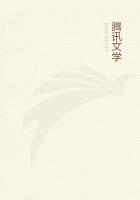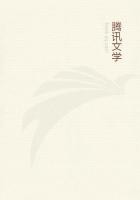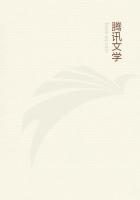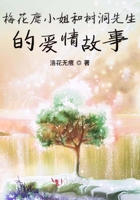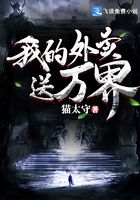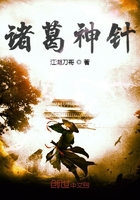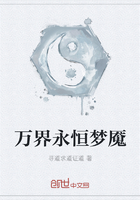At ten minutes past twelve he had gotten rid of patrons and clerks, and he had the gold out and his green eyeshade adjusted as becomingly as a green eyeshade may be adjusted. He looked out and saw that the street was practically empty, because of the hour and the heat that was almost intolerable where the sun shone full. He saw a big red machine drive up to the corner and stop, and he. saw a man climb out with camera already screwed, to the tripod. He saw the bandits throw away their cigarettes and follow the camera man, and then he hurried back and took up his station beside the stacks of gold, and waited in a twitter of excitement for this unhoped-for encore of last Wednesday's glorious performance. Through the window he watched the camera being set up, and he watched also, from under his eyeshade, the approach of the two bandits.
From there on a gap occurs in the cashier's memory of that day.
Ramon and Luis went into the bank, and in a few minutes they came out again burdened with bags of specie and pulled the door shut with the spring lock set and the blinds down that proclaimed the bank was closed. They climbed into the red automobile, the camera and its operator followed, and the machine went away down the street to the post-office, turned and went purring into the Mexican quarter which spreads itself out toward the lower bridge that spans the Rio Grande. This much a dozen persons could tell you. Beyond that no man seemed to know what became of the outfit.
In the bank, the cashier lay back across a desk with a gag in his mouth and his hands and feet tied, and with a welt on the side of his head that swelled and bled sluggishly for a while and then stopped and became an angry purple.
Where the gold had been stacked high in the sunshine the marble glistened whitely, with not so much as a five-dollar piece to give it a touch of color.
The window blinds were drawn down--the bank was closed. And people passed the windows and never guessed that within there lay a sickly young man who had craved adventure and found it, and would presently awake to taste its bitter flavor.
Away off across the mesa, sweltering among the rocks in Bear Canon, Luck Lindsay panted and sweated and cussed the heat and painstakingly directed his scenes, and never dreamed that a likeness of his voice had beguiled the cashier of the Bernalillo County Bank into consenting to be robbed and beaten into oblivion of his betrayal.
And--although some heartless teller of tales might keep you in the dark about this--the red automobile, having dodged hurriedly into a high-boarded enclosure behind a Mexican saloon, emerged presently and went boldly off across the bridge and up through Atrisco to the sand hills which is the beginning of the desert off that way. But another automobile, bigger and more powerful and black, slipped out of this same enclosure upon another street, and turned eastward instead of west. This machine made for the mesa by a somewhat roundabout course, and emerged, by way of a rough trail up a certain draw in the edge of the tableland, to the main road where it turns the corner of the cemetery. From there the driver drove as fast as he dared until he reached the hill that borders Tijeras Arroyo. There being no sign of pursuit to this point, he crossed the Arroyo at a more leisurely pace. Then he went speeding away into the edge of the mountains until they reached one of those deep, deserted dry washes that cut the foothills here and there near Coyote Springs. There his passengers left him and disappeared up the dry wash.
Before the wound on the cashier's head had stopped bleeding, the black automobile was returning innocently to town and no man guessed what business had called it out upon the mesa.

